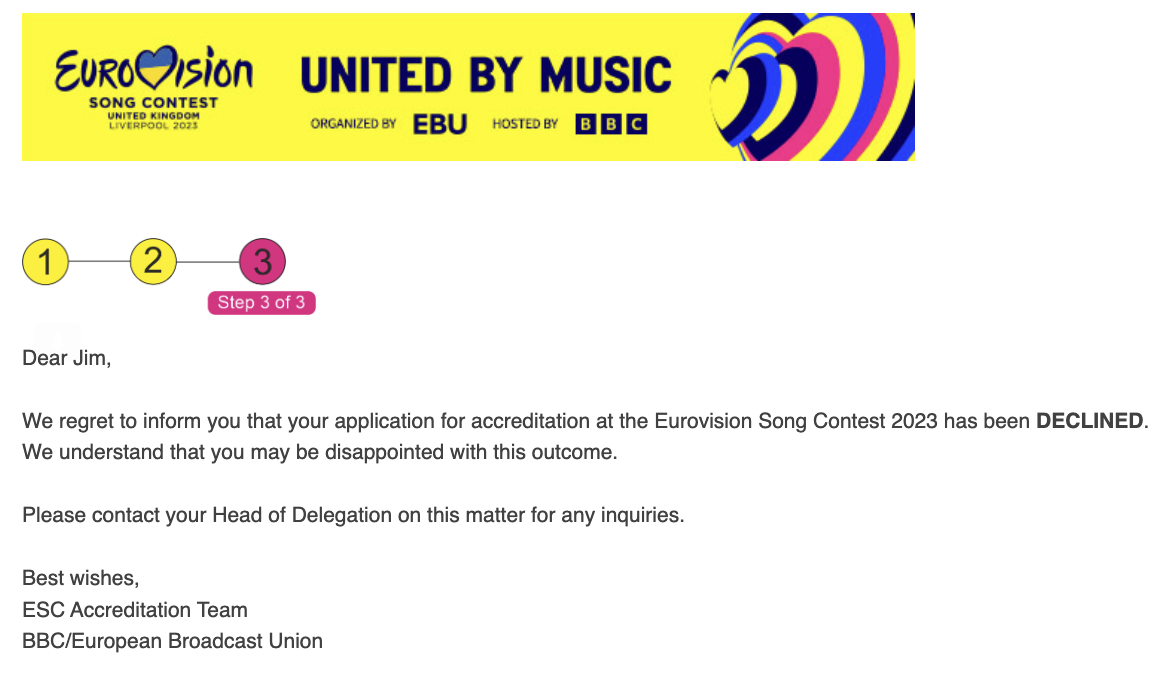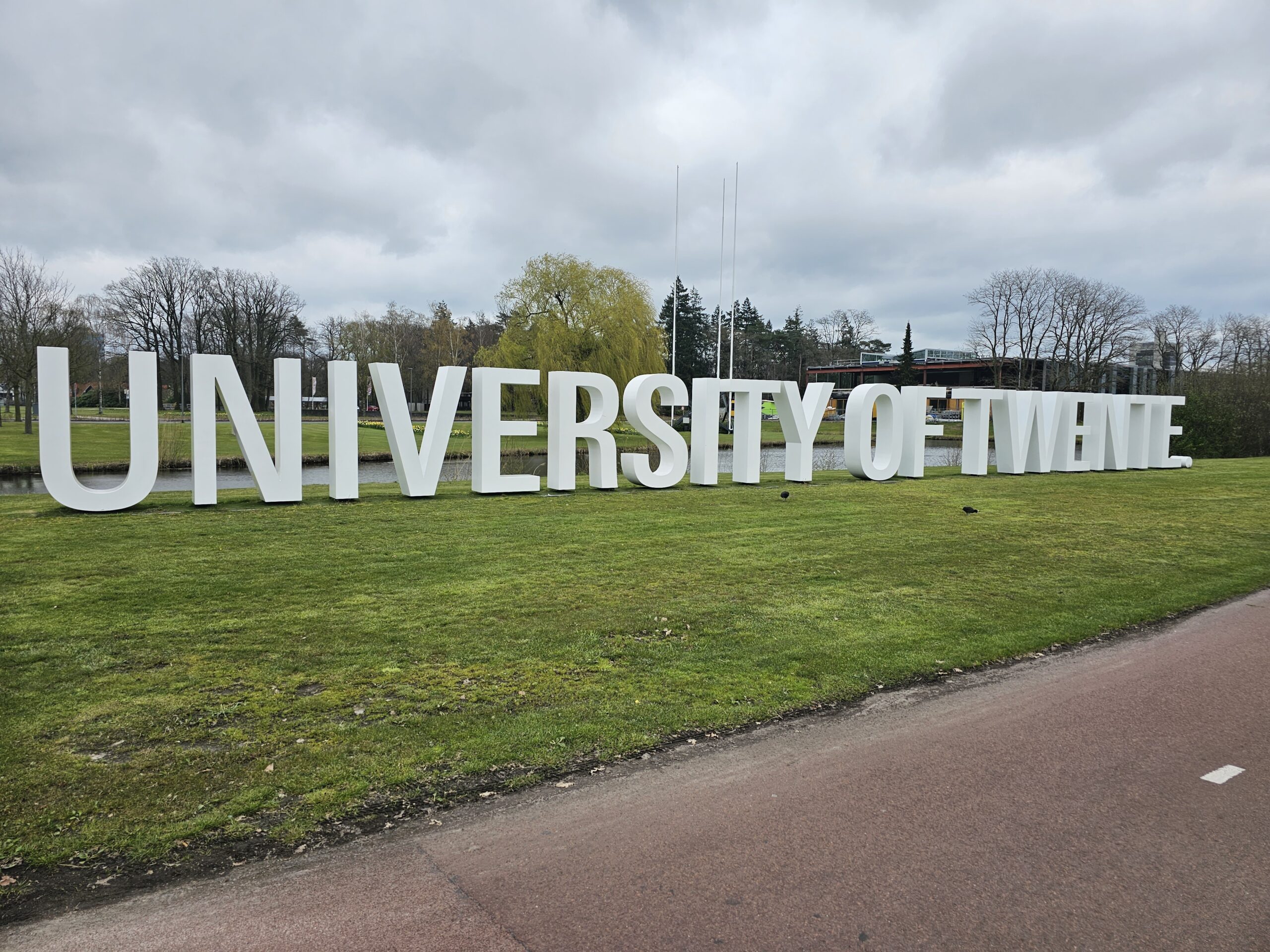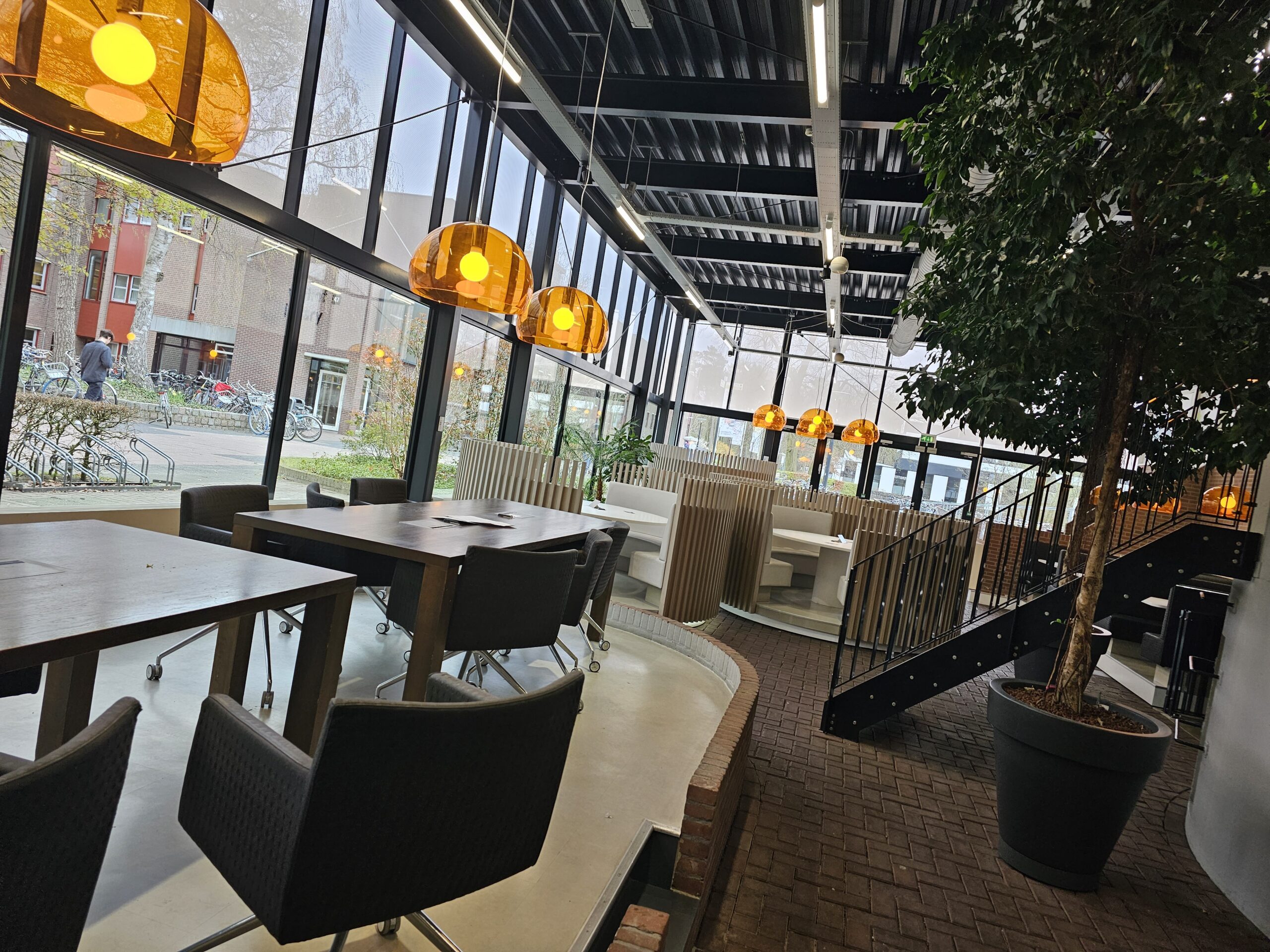Every year in the run up to the Eurovision Song Contest, I dig out a flattering passport photo and have a go at obtaining media accreditation – on the basis that I’ll somehow find some interesting links between the longest-running annual international televised music competition in the world and the UK’s higher education sector.
Sadly even the prospect of my detailed (and I assure you what would be fascinating) write up of a deep dive I did at a conference once into the similarities between SU elections and the Concours Eurovision de la chanson (costumes, complex voting systems, etc) has never been enough to assure the bureaucrats that I’d be a better bet for positive publicity than some lad from the Swindon Advertiser.

Nevertheless in an effort to shake myself out of being despairing about the state of the sector and to (tenuously) celebrate the contest’s arrival into Liverpool on behalf of Ukraine, I thought I’d craft a short series of blogs on some of the more interesting things we’ve seen on our coach tours of European universities and students’ unions over the past few years. Some Euro visions, if you will.
Wouldn’t it be nice
Wouldn’t it be great if students learned how to collaborate with others in teams, realised early on if they are on the right course, became more self-reliant, became “employment ready” professionals who are constantly learning and growing, and were able to combine aspects of their programme with others’ and wider society?
We start our tour in Enschede, a municipality and former textiles industry base in the eastern Netherlands in the province of Overijssel and in the region of Twente, which gives the University of Twente its name.

It’s a campus university on the edge of the city, with about 14,000 students and a largely STEM based portfolio – albeit that there’s plenty of Business Studies, Psychology and Social Sciences students rubbing shoulders with those in labs and playing with expensive equipment.
It’s a member of the European Consortium of Innovative Universities, a network of universities “united by a common profile of shared beliefs, interests, and mutual trust”. Founded in 1997, ECIU is a group of “entrepreneurial universities” that “drive a culture of innovation” within institutions, who in turn provide a “catalytic role” for innovation in business and society at large.
And that isn’t just about fancy marketing, giant styrofoam letters or taking the local MP around a few labs with a hard hat on.
Uncle Tom Cobley and all
Twente’s undergraduate programme is based around something they’ve called the Twente Educational Model (TOM), which on first glance is very much the sort of thing that UK universities reckon they’re about:
Our ever-changing society requires different knowledge and skills than before. Many of the professions that people have today did not even exist twenty years ago. There is also no way of predicting what our students will be doing twenty years from now. We do know that flexibility will be required: our students will probably work in a more complex and rapidly changing environment, and their jobs will be less secure and less permanent than today’s jobs.”
What’s different is the pretty radical way in which they’ve gone about it.
In the UK outside of the odd experiment, we’re used to the grim predictability of an undergraduate student undertaking four modules at a time twice a year at 7.5 ECTS credits each, with all of the timetabling chaos, deadline bunching and contemporary inability to fit “real world” application or extracurricular skills development either into or around that structure that we are used to.
But when a few years back the university was both examining its cost base carefully and thinking about how to educate students to become “entrepreneurial professionals”, a new approach was trialled.
Gone was the impossibly long tail of module choice with some large compulsory modules at the start, and a big dissertation at the end to save on costs. In came a structure designed specifically to immerse a student in their field of study, enable them to contribute to its development, and support them to apply that knowledge in a broader context in collaboration both with other disciplines and wider society.
As a result the core undergraduate programme consists of 12 modules, each worth 15 credits, that students undertake two of at once in each semester:
- Modules 1-6 form a basis, where modules 1+2 (that first semester) have a “selective and referring role” that helps students work out of they’re on the right course, and helps the university discharge its legal responsibility in the Netherlands to chuck someone off the programme if they’re not up to it (a marked contrast to the opposite pressure here);
- Modules 7+8 are elective components within the relevant discipline, and modules 9+10 are free-choice elective components in related disciplines;
- Then modules 11+12 cover the final phase in which a final project is accompanied by other educational activities, where a key aspect of the teaching is on reflection so that students also learn to understand the impact their research or idea may have.
And crucially, almost every module is a project:
- We design a module as a complete package of integrated educational activities.
- Project-based working keeps the students active and gives them the opportunity to delve deeper into other areas.
- The projects show students how the components in their own field of study are related to each other and to other fields.
- Through shared projects, they also become familiar with other disciplines.
- The project is accompanied by teaching activities. Students are more motivated to learn because they experience directly why they need particular knowledge and skills (purpose).

Cleverly, all modules provide a basic foundation of important knowledge and skills (competence), have scope for input in terms of content, the teaching methods or planning (autonomy), and they are part of the community within their programme (relation).
There are no “single hero” academic modules here. Teams do the work – one takes on the module coordinator role, there’s usually a separate project coordinator, and student groups are each supervised by a tutor for the project.
When it comes to assessment, students get regular feedback on their progress during the ten weeks – through tests, meetings with tutors or feedback from teachers or fellow students, and then either a final (often in-person, oral) summative test at the end or a series of tests during the module (many of which test assess individual contribution to group work).
Belonging and responsibility
The descriptions of the benefits of the approach on Twente’s website are vivid, very much borne out by the conversations with students we had when we visited, and have a sense of vision about what the student academic experience ought to be like beyond the NSS inspired “satisfaction with provided components” approach that drives decision making in the UK.
Here a module leader describes with both passion and skill the way in which they supported the formation of groups. This example explains how a group of academics supported students to be self-reliant through a series of expectations rather than spoon-fed activities. And this write up explains some of the ways in which students are allocated facilitative or peer-support roles on each module.
And just under the shiny surface, it’s clear that the structure’s economics add up largely because having a smaller number of larger modules is more efficient, students do more of the course organisation than they would in the UK, and the interdisciplinary culture of the place drives additional efficiency.
The Netherlands’ student and university funding system helps, of course, and for extracurriculars the university’s approach – which allows hundreds of students to draw down maintenance support for a semester while running spectacularly ambitious projects on everything from widening participation to induction and from careers to counselling – results in radically fewer professional services staff and radically more student engagement in those activities.
Oh, and as elsewhere in the Netherlands, participation in university governance and decision making is so important that it’s remunerated for both staff and students, either in “buy out” or cash or both.
Could it all work in the UK? Maybe. The subject areas at Twente and both the funding system and the “problem based” nature of HE in the country help, as does a tradition of associative participation that is deep in the country’s culture. But crucially what’s going on here feels like an interesting and apparently successful experiment in ambition – over what students are capable of in their academic attainment, concern for others and the organisation of their own experience.












